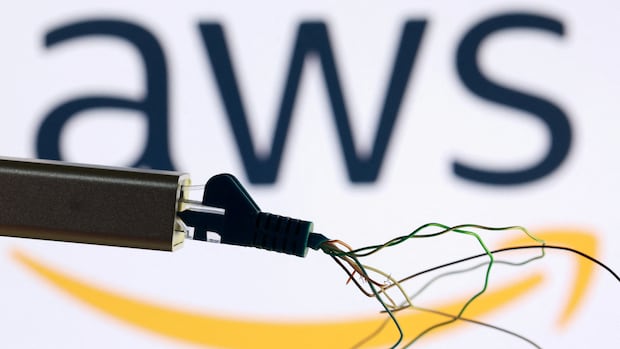A few days after Amazon's cloud services company AWS had an outage that plunged millions of popular websites and apps into the dark, questions still linger about why we're so reliant on a handful of companies in the first place — and why it might be hard to prevent another outage.
Reminiscent of last year's CrowdStrike outage and the Rogers outage of 2022, Monday's disruption demonstrated just how many corners of the economy are dependent on a single company.
Snapchat, Pinterest, Reddit and Spotify went dark. The Starbucks app — along with DoorDash and Grubhub — struggled to take food and drink orders, and the Lyft app had trouble connecting drivers with riders. Some Venmo users couldn't transfer money, and some Zoom users couldn't make video calls.
Streaming services like Netflix, Disney+ and Amazon's own Prime Video were affected, and messaging services WhatsApp and Signal had issues. U.K. government websites stopped loading properly, as did some of the platforms used by its National Health Service.
As Atlantic writer Will Gottsegen put it, tech outages happen — " but under our current system, a bad day for Amazon can be a bad day for everyone."
And the current system is one in which AWS captured n
Continue Reading on CBC News
This preview shows approximately 15% of the article. Read the full story on the publisher's website to support quality journalism.
